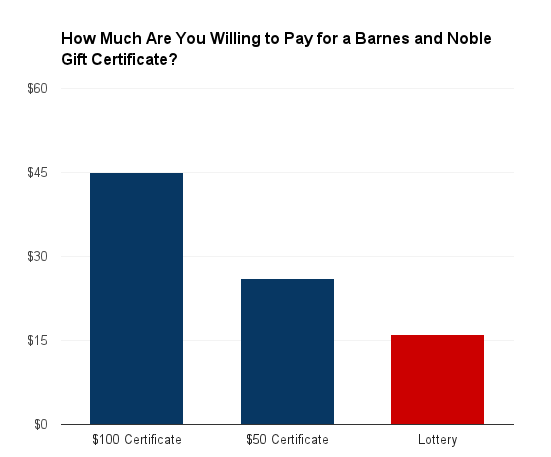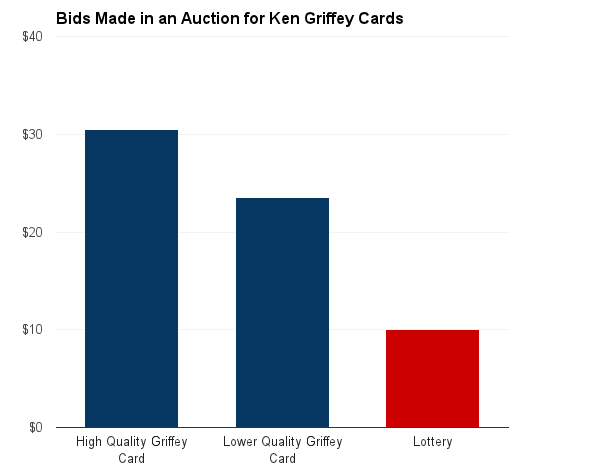In a 2006 study, economists Uri Gneezy, John List, and George Wu set out to test how we respond to uncertainty. They asked college students how much they would be willing to pay for a $100 and a $50 gift certificate from Barnes & Noble. How did students value these gift certificates? Predictably, they were willing to pay a larger amount for the bigger prize– they valued the $100 certificate at $45, and the $50 certificate at a little over $25.
But then the economists introduced some uncertainty into the fray. They asked the students how much they would pay for a 3rd option — a lottery with a 50-50 chance between a $100 certificate and a $50 certificate. At worst they’d get the $50 certificate, but they might get the $100 one instead.

Data via UCSD
The researchers were surprised at how lowly the lottery was valued (only $16.12). Students valued the $50 certificate 60% more than the lottery, even though it was strictly worse than the lottery option. Risky options give us the creeps, even if they’re good choices.
Gneezy, List, and Wu wanted to see if this phenomenon would hold in an actual marketplace. At a card-collector expo, they set up sealed auctions for three items: a high-quality Ken Griffey baseball card, a lower-quality Griffey card, and a lottery with a 50-50 chance between the two cards. By looking at the bids made by collectors, we see a similar result as from above:

Data via UCSD
In the auction, the higher quality card got the highest average bid ($30.50). But, similar to the Barnes & Noble experiment, collectors bid the least for the lottery ($10) and over 2x that much for the lower quality card!
Gneezy, List, and Wu call this behavior the Uncertainty Effect– when people undervalue an option merely because its risky. They suggest that:
“Individuals may find it difficult or unnatural to think through the possible consequences of a risky choice and that they, as a result, may alter their choice process to deal with the conflict.“
In other words, uncertainty breaks your brain.
To get occasional notifications when we write blog posts, sign up for our email list.



